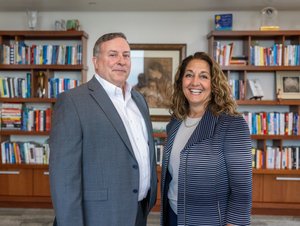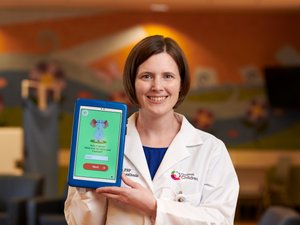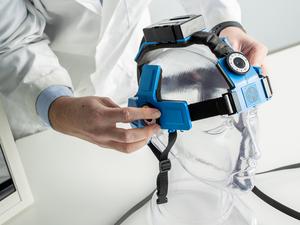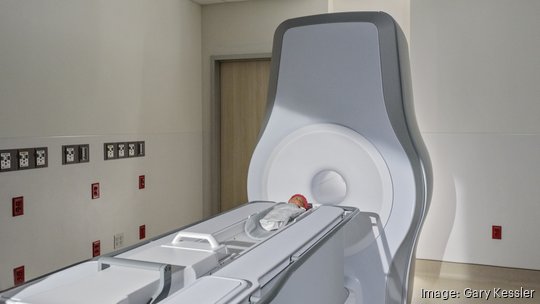
A startup born at Cincinnati Children’s Hospital and backed by one of the city’s most active venture firms is emerging from stealth mode with a series of celebratory moments — including naming a former Procter & Gamble executive as its CEO.
Eyas Medical Imaging, which was flagged in December by Cincy Inno as a "Startup to Watch" in 2023, is also marking another key achievement. The company, which is developing a right-sized MRI tailored to the smallest and most fragile patients – infants in neonatal intensive care units – has installed its first MRI, called the Ascent, at Cincinnati Children’s.
It plans to conduct research studies involving the Ascent before applying for a key U.S. Food and Drug Administration clearance later this year, a major step toward commercialization. To lead those pre-commercialization efforts, Eyas has named Matt Storer its CEO, effective July 10.
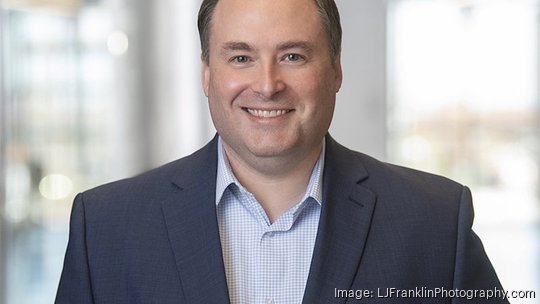
Storer currently serves as an executive-in-residence for startup seed-stage investor CincyTech and is a 25-year P&G veteran who held previous leadership roles covering strategy, marketing, insights, analytics, sales and manufacturing.
Avondale-based CincyTech, according to filings, has invested in Eyas as far back as 2017 and led its most recent $5.8 million Series A.
Storer been part of the Eyas management team for the past year and will lead the company through its 510(K) submission with a focus, too, on future fundraising.
“As the company starts to scale, and there's more activity from an external standpoint, having experience managing that is important,” Storer said. “There’s also a ton to do from a future product roadmap standpoint, and coming in frees up (founder Chuck Dumoulin) to focus on that. It’s an honor to work with a team that has dedicated their careers to saving babies’ lives.”
The technology, while kept largely under wraps until now, has been years in the making and could transform the way health care professionals evaluate newborns, said Dumoulin, who serves as Eyas Medical's chief technology officer and is an MR physicist and professor of pediatrics and radiology at Cincinnati Children’s.
MRI is very rarely used in this patient population, he said, even though it can better identify disease conditions over an ultrasound or X-ray. There’s a tremendous risk and resources involved in transporting NICU babies. “Even a subtle disturbance can cause lifelong problems ... there’s also infection risk,” he said.
The Ascent is smaller and weights fractionally less than an adult version, meaning it can be installed inside the NICU, thus reducing the need for travel.
“It is a tremendous opportunity,” Dumoulin said. “When (MRI) first came out in the early 1980s, we didn't know how many different ways it would change health care, and today, everybody pretty much has routine access to it except for premature babies. This new scanner addresses that gap, and in the coming years, I’m sure we're all going to be surprised at how useful it is to improving the outcomes of NICU babies all over the world.”
Dumoulin has worked at Cincinnati Children’s since 2008. He officially launched Eyas in 2014, and the company is based in Queensgate with a team of 14.
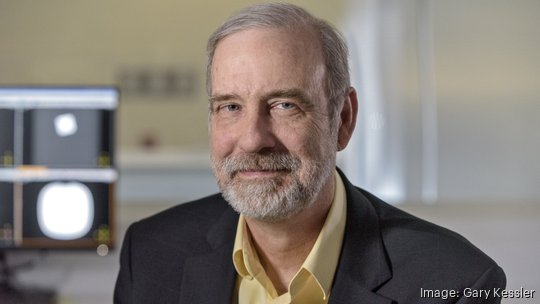
The Ascent offers several benefits while also solving a huge access problem: Its reduced size and weight means it can be wheeled and delivered in a passenger elevator and easily sited on upper floors of the hospital.
Given the scale of conventional radiology equipment, those machines are often delegated to the ground floor or basement of a hospital – “very, very far” from the NICU, he said. The neonatal intensive care unit at Cincinnati Children’s, for example, is located on the fourth floor of the hospital’s critical care tower, or Location G.
In terms of its technology, the Ascent uses a 3 Tesla, or 3T, magnet, sized expressly for this patient population, Dumoulin said. That affords a magnetic field strength previously unavailable in neonatal MRI systems. It provides health care professionals with detailed imaging of vital organs, including the brain, lungs, heart and abdomen with “unmatched accuracy.”
Eyas partnered with one of world’s top medical device companies and a top MRI vendor to develop the magnet.
“The scanner is as good as an adult-size scanner – or even better in some ways – with pretty much a full suite of capabilities,” Dumoulin said. “None of (our competitors) have a magnet with that performance.”
With its installation at Cincinnati Children’s, Eyas will be evaluating the system’s strengths and weaknesses. Since the Ascent doesn’t yet have FDA clearance, the device will be used in “research mode,” Dumoulin said, using Institutional Review Board, or IRB, protocols. Infants scanned will be considered participants in the research study.
The company intends to file for FDA 510(K) clearance by the end of the year. That will allow the company to legally market the device.
As soon as it can after that, Dumoulin said the goal is to start installations at other hospitals.
“We’ll see how that develops, but we’re going to try to move as quicky as we can,” he said. “We’re looking forward to getting through this next step to get this product out into the world.”
Eyas is currently working on a Series B extension round and will likely look to raise a Series C early next year. Funds would be used in part to scale commercialization.
To date, Eyas has raised $18 million.
In addition to CincyTech, Cincinnati Children’s also holds equity in the company, and Eyas counts JobsOhio Growth Capital Fund and Tesla Engineering as partners.
